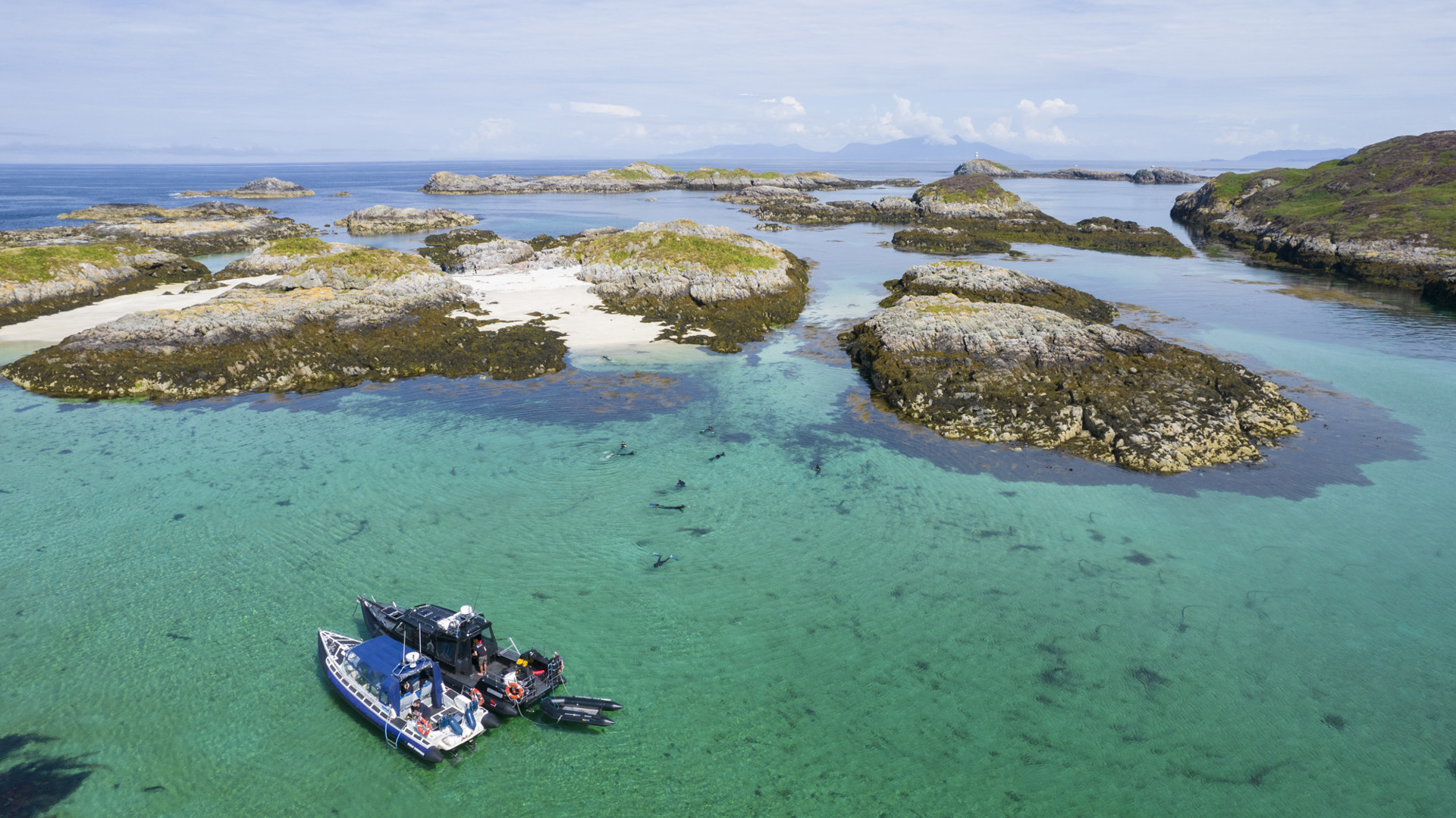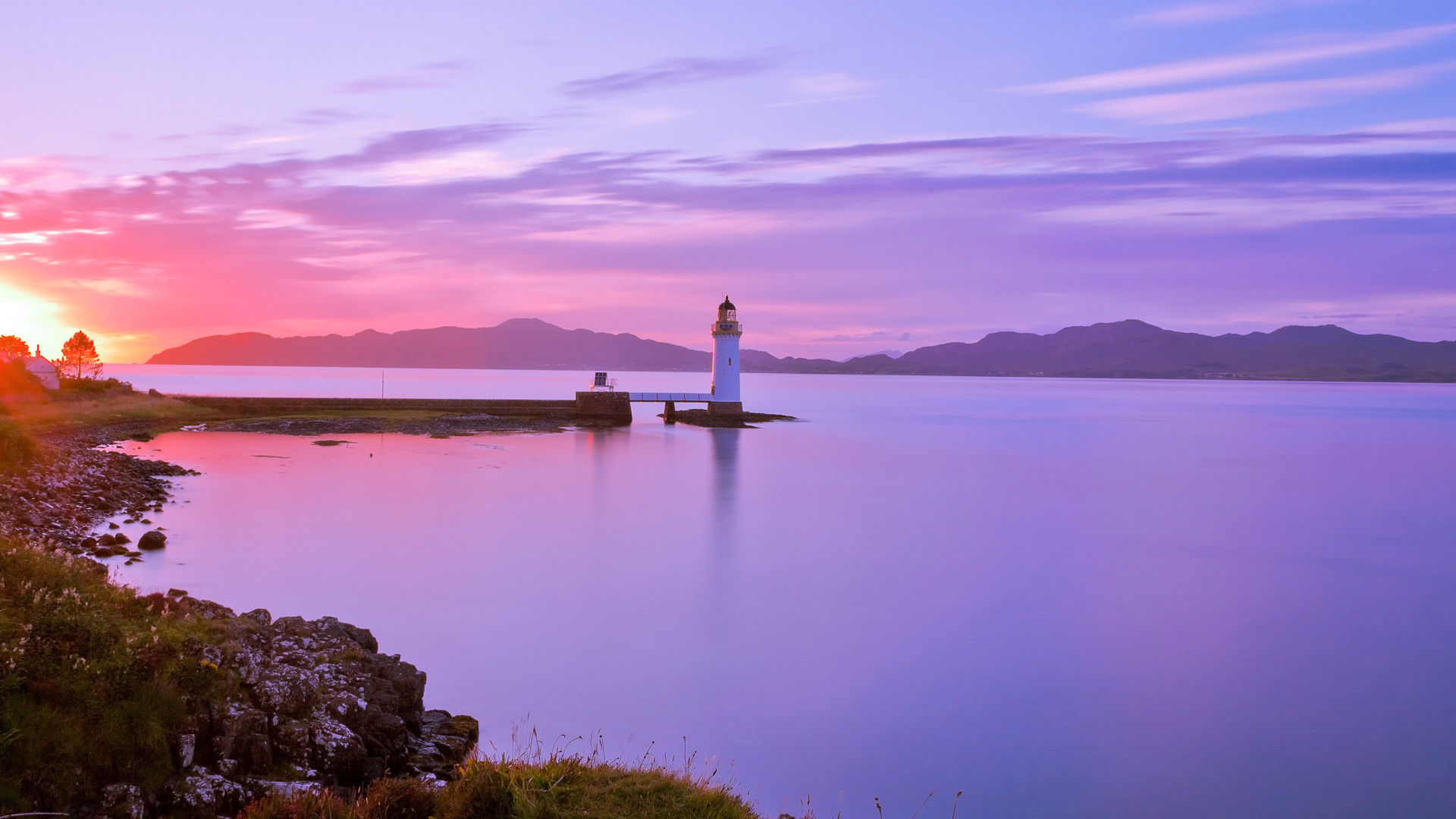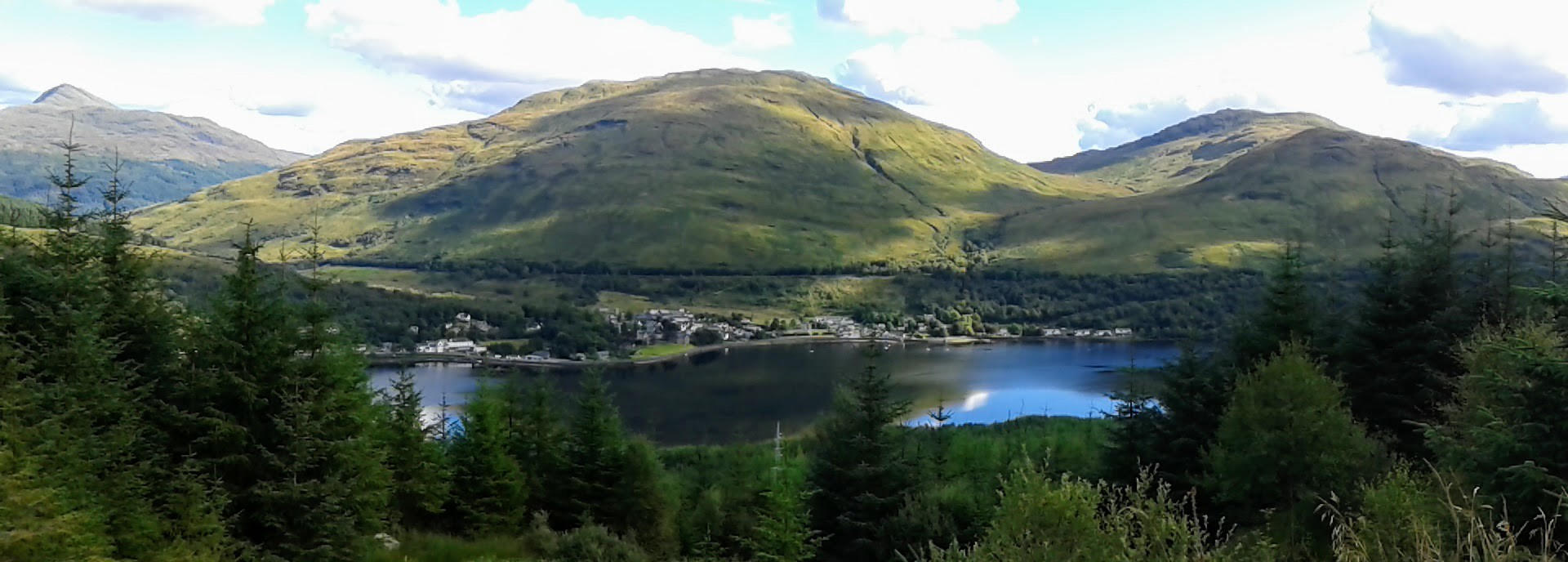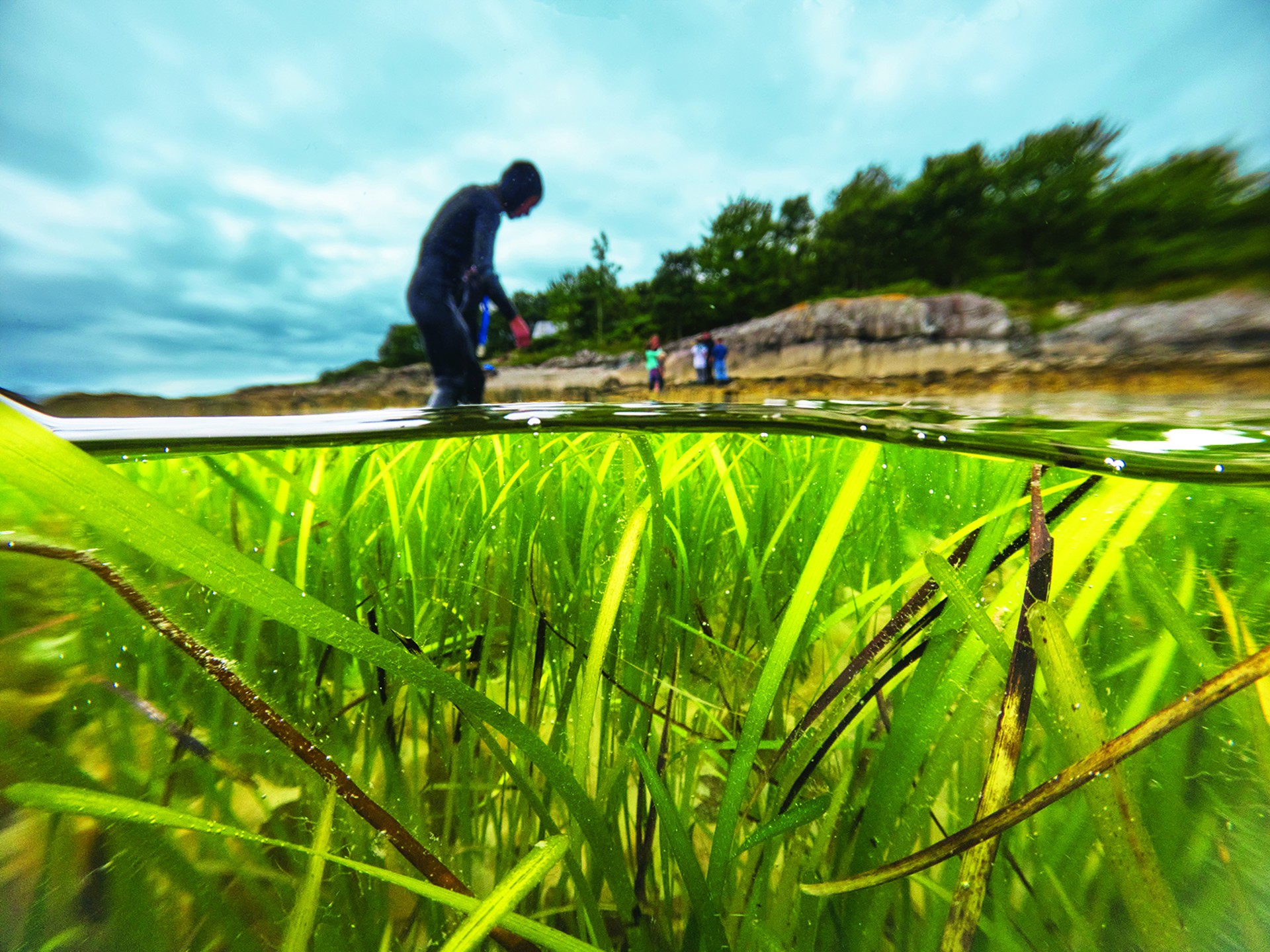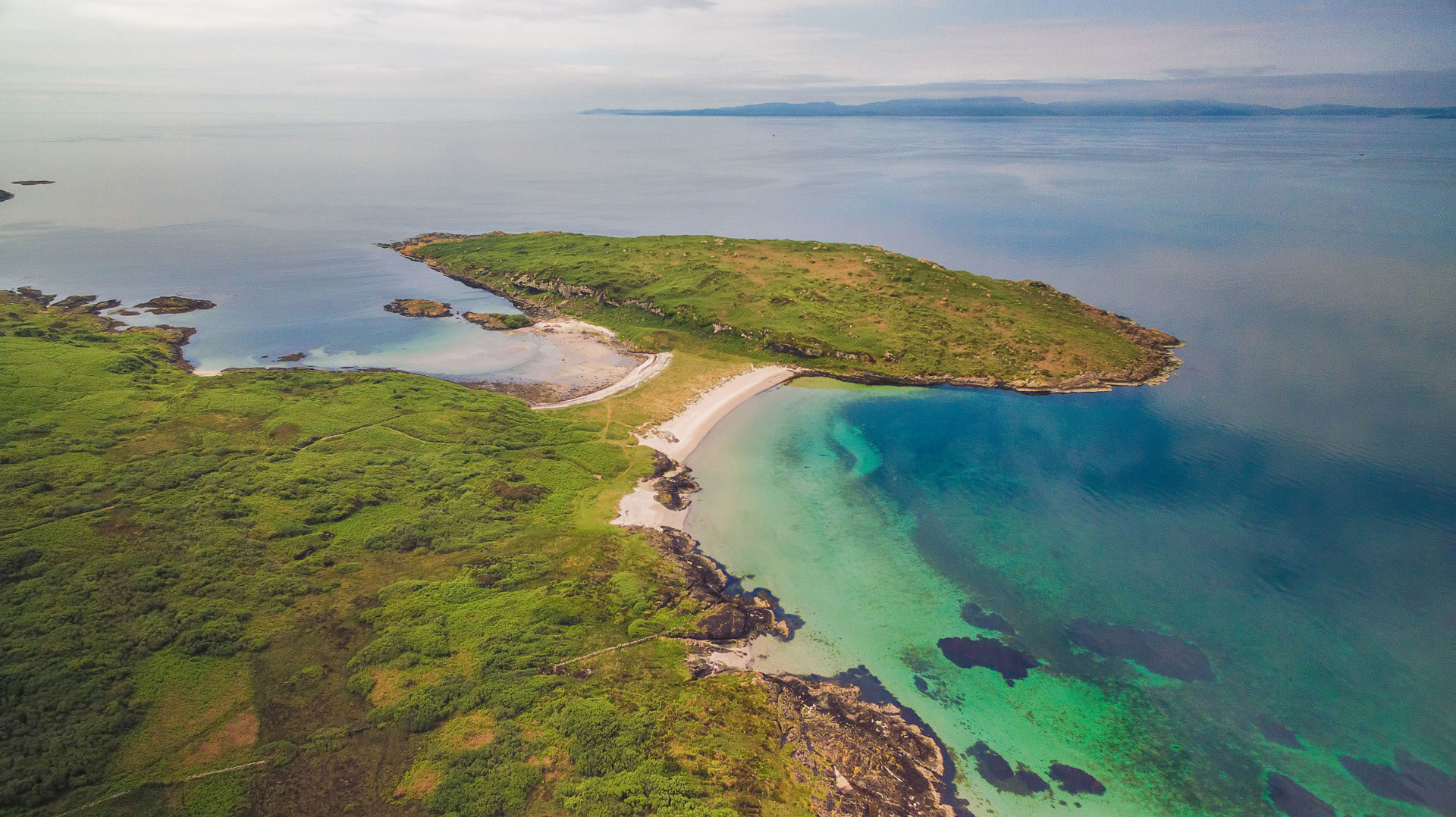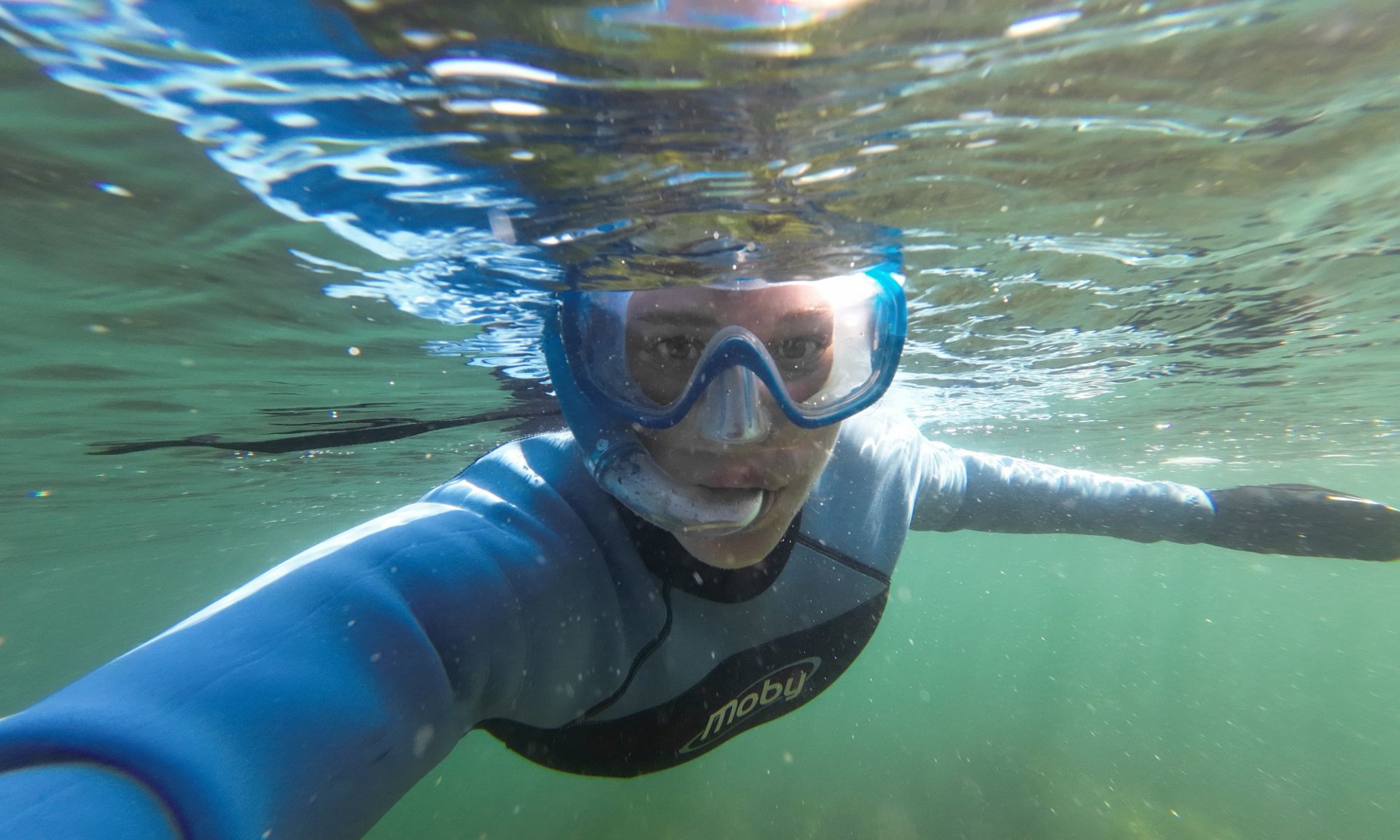



Snorkel Scotland's Adventure Coast
3,723km of coastline to experienceSnorkelling in Scotland is increasingly popular. Take the plunge to discover marine life in all its rich and varied forms. It may be cold, but that’s what wetsuits are for!
With 3,723km of coastline, clear shallow waters and an abundance of marine wildlife and wreck sites, Scotland’s Adventure Coast is perfect for snorkelling. So perfect that the area has been designated the UK’s only Hope Spot – a special place that is critical to the health of the ocean.
Just a stone’s throw from Glasgow, the living west coast waters of Argyll offer shallow sheltered bays, crystal clear sea lochs and unspoilt natural reefs. With a huge range of habitats, marine life is abundant. There are even guided night-time snorkelling adventures.
The ever-changing scenery is spectacular both above and below the waterline. Discover rich forests of kelp, seagrass meadows and rocks studded with starfish and sea urchins. Watch crabs scuttle across the seabed and silvery shoals of fish. You might even see a basking shark – the gentle giants of the sea - out near Coll and Tiree. Bob your head above the water and you’ll get a different view of Argyll’s stunning landscapes – it’s not unusual to spot seals basking on nearby rocks.
Above and below, Argyll has it all.
Why try Snorkelling?
Snorkelling allows you to glimpse the flora, fauna, colours and creatures of the underwater world. It’s an ever-changing landscape rich in biodiversity.
As well as being magical, snorkelling shares many of the benefits of wild swimming. It’s a great boost for physical and mental health and, in shallow, sheltered spots, is easily accessible for all the family. Just don a wet suit and a snorkel mask and you’re ready to go!
Snorkelling in Argyll
Argyll’s coastline is one of the most biologically diverse marine environments in Scotland and the UK. You don’t have to venture far from the shore to discover an incredible array of species and habitats. The marine environment of Argyll and the islands is of international significance with numerous Marine Protected Areas and Special Areas for Conservation designations. Marine biodiversity is rich, with a huge range of habitats thanks to the intricate coastline of sea lochs, peninsulas, deep water sounds, narrows and islands.
Marine life is diverse and plentiful and varies from site to site, season to season and even tide to tide, making snorkelling in Argyll an enjoyable and rewarding experience.
The Argyll Snorkel Trail
The Argyll Snorkel Trail takes in idyllic sandy coves, sea lochs, marine restoration projects and exotic gardens.
Use the map below to find out more about locations, parking, access and facilities.
Guided Snorkelling
If you’re new to snorkelling, or unfamiliar with the area, we strongly recommend that you take some lessons and or snorkel with an experienced and professional guide. Your guide will understand local conditions and point out lots of things of interest so that you can enjoy a safe and enjoyable introduction to snorkelling.
Top Snorkelling Spots
Local RecommendationsSafety First
Before you go
Snorkelling is a lovely way to explore the oceans but it’s not without risk.
Keep safe by following these snorkelling safety tips from the Scottish Wildlife Trust:
- Check the conditions: be aware of tides, water temperatures, currents and weather forecast before you leave.
- Take a friend: never snorkel alone and always tell people where you are going.
- Know who to contact: find out where the nearest medical and/or coastguard facility is and note down who to contact in an emergency.
Please note:
Snorkelling is not without risk. Featured locations and local businesses are provided for your information only. All activities are undertaken at your own risk.
At the beach
- Know your surroundings: check the weather and tides, and identify a landmark for reference.
- Use the right snorkel equipment: only use quality and well-fitting mask, snorkel and fins.
- Wear the right protection: a full wetsuit will provide warmth, buoyancy and protection against jellyfish stings.
In the water
Follow the Snorkeller’s Code:
- Do not remove seaweed or animals from rocks.
- Take care not to kick sea life with fins or stand on them.
- Observe animals where they live and don’t take anything away.
- Keep a safe distance, you could be bitten, stung or pinched and don’t touch corals – they can cause burning and irritation.
- Know how to treat any injuries.
Experience snorkelling with a guide
More Snorkelling Sites You'll Love
There are numerous sites of interest, some of which need to be reached by boat.Snorkelling FAQs
What is snorkelling?
A snorkel is simply a breathing tube.
To snorkel, you swim using a mask, snorkel and fins, but without using self-contained underwater breathing apparatus (SCUBA). If you can swim, you can probably snorkel.
Is snorkelling legal in Scotland?
Yes, the Scottish Outdoor Access Code allows you to roam and swim relatively freely in inland and coastal waters provided that you do so responsibly. This means it is legal to snorkel in Argyll’s sea, lochs and rivers.
Is snorkelling safe?
No water-based activity is 100% safe and you should always have a healthy respect for the water.
If you’re new to snorkelling, you should seek training so that you know how to snorkel safely in open water. BSAC offers a range of snorkelling courses for beginners.
You should wear good quality snorkelling equipment which fits properly. Start at a clear, shallow beach and stay in your depth.
You can minimise the risks by reading and following the safety advice provided by Scottish Wildlife Trust and others (see useful links) planning ahead and exercising caution at all times. Never snorkel alone.
What kit do I need for snorkelling?
As a minimum, you’ll need:
- Full wetsuit (to keep warm, provide buoyancy and shield your skin from stings and grazes)
- Snorkelling mask and snorkel (breathing tube)
- Fins and fin socks or thick boots
If you are going to be in the water a while, a rash vest, hood and diving gloves will be be useful.
Wear lots of layers and bring a robe for changing and warming up after your snorkel. Bring something to stand on while you get changed.
A drink and snack will be welcome after your snorkel.
What do I do if I get into trouble or see another snorkeller experiencing difficulties?
Call the coastguard on: Call 999 or 112 and ask for the coastguard in an emergency. (If you don’t have a signal, your phone will try to connect you to the nearest network.)
How is snorkelling spelt? Is it snorkeling or snorkelling?
It depends whether you are using UK English or US English. The UK spelling is snorkelling, the US spelling is snorkeling. You will find different spellings for snorkelling and or snorkeling in Scotland – mainly because those writing about it come from different places!


